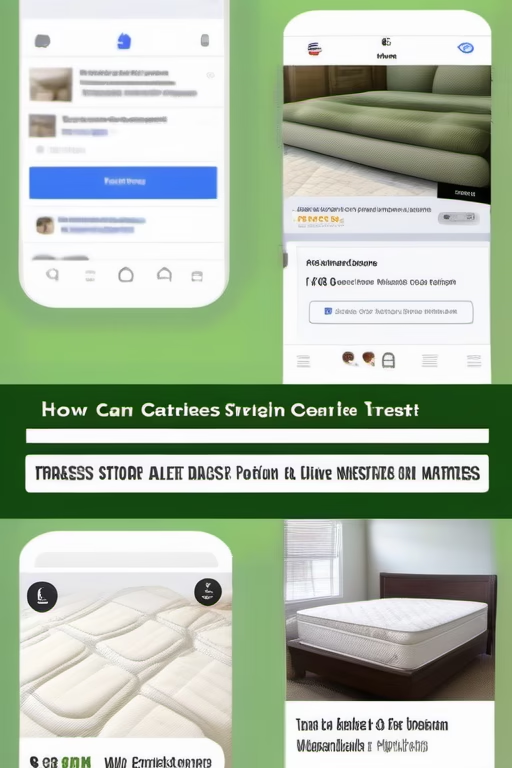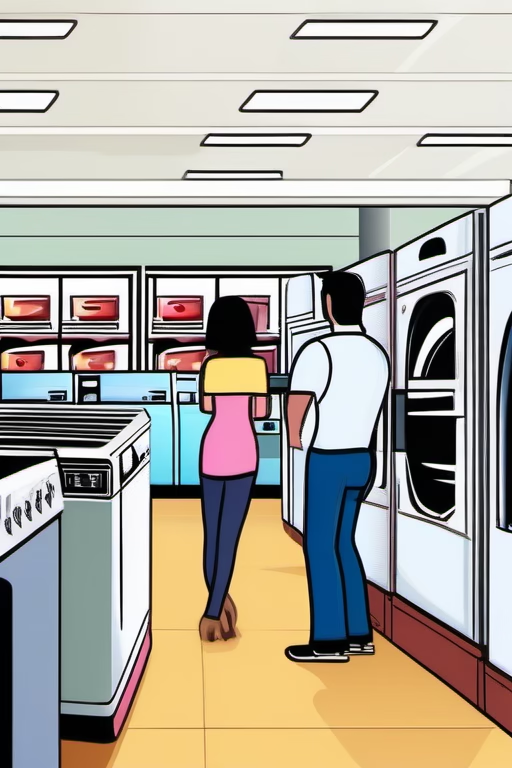How AI Automation Helped Us Scale from 10 to 1,000 Listings
Our hands-on blueprint: prompts, pipelines, QA, and KPIs that turned a tiny catalog into a repeatable listing machine.
Introduction
How AI Automation Helped Us Scale from 10 to 1,000 Listings isn’t a theory piece—it’s a field note. We’ll unpack the lean stack, the exact prompts, the guardrails that prevented messy outputs, and the weekly rhythms that kept quality rising while the team stayed small.
Principles: accuracy over speed, policy-safe language, real photos, and human approvals on anything public-facing.
Expanded Table of Contents
- 1) The backstory: where we started (10 listings)
- 2) Stack overview: data → AI transforms → QA → channels
- 3) Pipeline blueprint (CSV to published)
- 4) Prompt library: titles, descriptions, attributes
- 5) Images: rights, naming, and quick edits
- 6) Deduping & normalization
- 7) QA gates: what we approve and why
- 8) Policy & risk checks
- 9) Throughput math & batching strategy
- 10) Team roles & SOPs (lean)
- 11) KPIs & dashboard (from draft to sale)
- 12) 30–60–90 day rollout plan
- 13) Troubleshooting table
- 14) 25 Frequently Asked Questions
- 15) 25 Extra Keywords
1) The backstory: from 10 to 1,000
We were posting manually with copy-paste fatigue. The first breakthrough was converting our scattered notes into a clean spreadsheet: one row per SKU with title seeds, specs, condition, and media paths. AI didn’t replace judgment—it removed the grunt work between “idea” and “ready to publish.”
2) Stack overview: data → AI transforms → QA → channels
| Layer | Purpose | Owner Tip |
|---|---|---|
| Source Data | Sheets with clean columns (title_seed, brand, model, size, condition, photo_url) | Lock headers; use validation lists |
| AI Transforms | Generate titles/descriptions, extract attributes, propose tags | Always cite source cells |
| QA Gate | Human approves, edits, or rejects; policy check | Checklist + two-click decisions |
| Feed/Export | CSV or API to channels (Marketplace, shop, aggregators) | Map fields per channel once |
| Analytics | Throughput & quality metrics | Weekly retro on bottlenecks |
3) Pipeline blueprint (CSV to published)
- Ingest: upload CSV (new rows only) ➜ validate columns.
- Transform: AI drafts titles/descriptions; extracts attributes; suggests category.
- Media attach: link to image folder; auto-rename and compress.
- Dedupe: fuzzy match on title+brand+image hash ➜ flag candidates.
- QA: reviewer checks deltas vs source; approves or kicks back.
- Export: assemble channel-specific CSVs or push via API.
- Monitor: track time-to-live, approvals, error notes, and removals.
4) Prompt library: titles, descriptions, attributes
Title pattern (items)
{Category} — {Key Feature}, {Brand/Model/Size}, {Condition 8/10}, {Area}
Rules: ≤70 chars, nouns over adjectives, no fluff.Description blueprint
Intro (≤120 words): what it is, standout feature, condition, availability.
Bullets (3):
• Specs (model/year/size)
• Logistics (pickup window / shipping / fees)
• Value (receipts/accessories/warranty)
CTA (1): DM "TIMES" for pickup window.Attribute extractor
From these fields {brand, model, dimensions, material, condition_text}, return:
brand, model, size, color, material, condition_score(1–10), defects_note(≤20 words).
Refuse to invent missing specs.5) Images: rights, naming, quick edits
- Use real photos (licensed if not yours). Keep receipts/serials on file.
- Rename files to {sku}_{angle}.jpg; compress to web-safe sizes.
- Hero: bright, level, shows scale (square or 4:5). Close-ups for defects build trust.
6) Deduping & normalization
Normalize brand names, sizes, and units. We hashed images and used fuzzy matching (title + brand + size). Anything with a match score above a threshold hit the “Needs Review” queue.
7) QA gates: what we approve and why
Approve when
- Title hits pattern and length
- Description references only known specs
- Photos show item clearly + defect close-up
Kick back when
- AI invented a spec or exaggerated claims
- Wrong category or missing attributes
- Policy risk or unclear logistics
8) Policy & risk checks
- Block disallowed items/phrases automatically.
- Use neutral, factual language; no health/legal promises.
- Store change logs for audits (who approved what, when).
9) Throughput math & batching strategy
We measured “listings per person-hour.” Batching similar SKUs let AI reuse context and cut editing time. Daily goal: 100 listings with two reviewers and one media lead.
Tip: lock your prompt and style guide for one week at a time—tune weekly, not hourly.
10) Team roles & SOPs
- Pipeline Owner: ensures sheet health, tracks KPIs, runs retros.
- Editor/QA: approves outputs, enforces policy and voice.
- Media Lead: manages photos, renaming, compression, and hero selection.
All steps live in one SOP with GIFs and one-line checklists per gate.
11) KPIs & dashboard
Throughput
Listings/hour, time-to-live
Quality
Approval rate, QA defects, policy flags
Engagement
Views, saves, messages
Sales
Pickups held, conversion, rating trend
UTM idea for links: utm_source=marketplace&utm_medium=automation&utm_campaign=listing_scale_2025
12) 30–60–90 day rollout plan
Days 1–30 (Foundation)
- Clean one category sheet; lock headers and validation.
- Write the style guide; finalize title/description prompts.
- Publish 25 listings/day; start the QA checklist.
Days 31–60 (Momentum)
- Add dedupe & policy checks; introduce media SOP.
- Hit 300–500 total listings; start basic analytics.
- Hold weekly retros; prune steps that don’t add value.
Days 61–90 (Scale)
- Expand categories; add API export or feed manager.
- Target 1,000 listings with stable approval and low error rate.
- Document everything and train backups.
13) Troubleshooting table
| Symptom | Likely cause | Fix |
|---|---|---|
| Robot-sounding titles | Too many adjectives | Use nouns, model/year/size; cap to 70 chars |
| Spec errors | Unconstrained prompting | Force quotes from source cells; block speculation |
| Duplicate listings | No fuzzy match | Add title+brand+image hash dedupe pass |
| Policy flags | Risky phrases or items | Auto-scan; neutral wording; replace media |
14) 25 Frequently Asked Questions
1) What does “How AI Automation Helped Us Scale from 10 to 1,000 Listings” cover?
Our exact pipeline, prompts, QA, and metrics.
2) Do I need engineers?
No—sheets + no-code works to start.
3) What did AI handle first?
Titles, descriptions, attributes, dedupe suggestions.
4) How did you avoid errors?
Constrained inputs and mandatory citations.
5) How fast to results?
Weeks for 5×, ~90 days for 1,000 steady.
6) Which KPIs matter?
Throughput, approval, error rate, views, messages, conversion.
7) How do you dedupe?
Fuzzy-match + image hash + human review.
8) What about images?
Rights-first, bright hero, consistent naming.
9) Pricing automated?
Suggestions only; humans decide.
10) Will this help local sellers?
Yes—optimize media and logistics bullets.
11) Budget to begin?
$0–$99/mo; grow to $300–$500/mo as you scale.
12) Policy concerns?
Block risky phrases; follow platform rules.
13) Brand voice?
One-page guide referenced by every prompt.
14) Templates per category?
Yes—electronics, furniture, apparel, rentals.
15) Messy source files?
Normalize fields before prompting.
16) ROI calculation?
Time saved + revenue lift − tools/QA costs.
17) Legal/IP?
Use licensed media and accurate specs.
18) Essential roles?
Pipeline owner, editor/QA, media lead.
19) Avoid chaos?
Locked SOP, weekly retros, versioned prompts.
20) CSV-only workable?
Yes—API later when needed.
21) Refresh cadence?
Batch weekly; rotate heroes when engagement dips.
22) Multilingual?
AI translate + human spot-check.
23) First step now?
Clean one sheet; ship 25 listings.
24) Biggest risk?
Invented specs—block them at the prompt level.
25) What kept quality high?
Short checklists, real photos, human approvals.
15) 25 Extra Keywords
- How AI Automation Helped Us Scale from 10 to 1,000 Listings
- ai listing automation
- bulk product listing ai
- ai title generator ecommerce
- ai description writer marketplace
- catalog enrichment ai
- listing attribute extraction
- fuzzy match deduping
- image hash duplicate check
- listing qa checklist
- policy safe listing copy
- marketplace feed manager
- csv to api automation
- listing throughput kpi
- approval rate metric
- error rate reduction
- message to sale lift
- media sop marketplace
- brand voice ai guide
- prompt library ecommerce
- multilingual listing ai
- dedupe pipeline
- no code automation listings
- listing scale 100x
- ai listing case study 2025

















